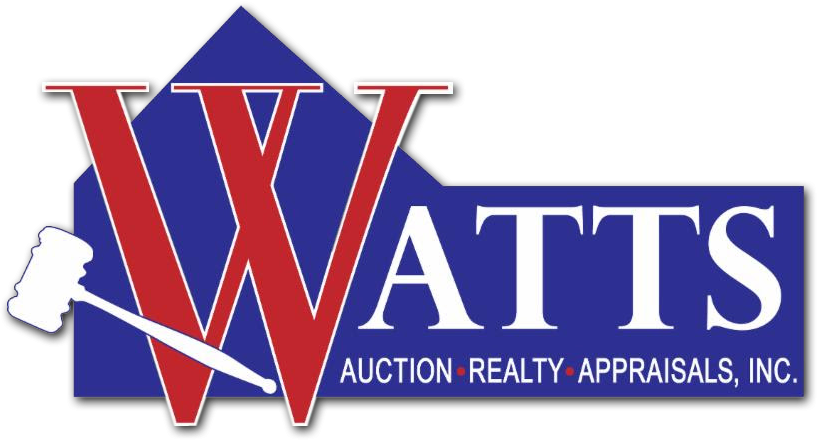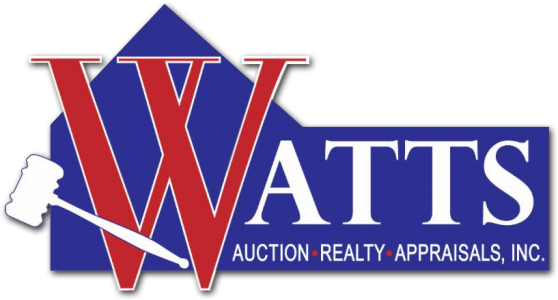Everything You Need to Know About Watts Auctions for Heavy Equipment
Everything You Need to Know About Watts Auctions for Heavy Equipment
Watts Auctions has become the leader in heavy equipment auctions in Virginia. Whether you’re
new to the bidding world or have participated in more auctions for heavy equipment than you
can count, navigating an upcoming heavy equipment auction can take some preparation.
Having a working knowledge of how to prepare and what the bidding process involves will
increase your chances of getting your hands on the equipment at the top of your list. When it
comes to online auctions specifically, prior knowledge can make your experience that much
better. Our auctions feature logging equipment (TigerCat, John Deere and more), heavy duty
construction equipment (dozers, CAT, backhoes, etc…), Farm Equipment, Trucking
Equipment, and more.
Here are some steps to follow to ensure you’re well prepared for an upcoming auction.
Ways to Prepare for Heavy Equipment Auction:
Perhaps you’re on the hunt for a specific piece of equipment or you’re looking to earn some
extra cash through selling your used machinery. Either way, it’s important to make the most of
your time before the auction date by preparing yourself for success when the time comes. As a
result, whether you’re buying or selling, you can get the best price for the equipment at Watts
Auctions.
If you’re selling a piece of equipment through an auction, you’ll want to prepare by ensuring your
piece of machinery looks appealing and functions properly. Be sure to give it a good cleaning,
refurbish any worn parts and perform routine maintenance to avoid giving prospective buyers
any reason to overlook your item. Then, contact the auctioneer you have in mind to set up
the sale.
When buying through a Watts heavy equipment auction, preparation involves a few related but
different considerations, including:
Researching the local market for each piece of machinery
Determining how much you’re willing to spend
Familiarizing yourself with the bidding process to develop a bidding strategy
Making a plan to have any item you purchase delivered to you
How to Inspect Heavy Equipment Properly
When buying used heavy equipment at an auction, it’s essential to conduct a thorough
inspection of any machine you’re interested in purchasing before bidding. This way, you
can ensure you’re completely informed about the machinery you’re buying. Any noteworthy
structural or mechanical issue could significantly reduce the value of the machine or make it
inoperable.
Here are some important details to consider when inspecting used heavy equipment at an in-
person auction:
Start the engine to see how well it turns over
Check underneath the engine for leaks
Inspect the welds for any cracks that could lead to leaks or worsening structural issues
Cycle the hydraulics
Listen for unusual sounds
Check the age of the machine and its usage history
How the Bidding Process Works
The key to success at a heavy equipment auction is understanding how bidding works
and developing a bidding strategy. With the proper knowledge and plan, you can stick closely to
your budget while increasing the odds of securing the sale or purchase.
That said, each auction company has its own bidding policies and processes, so you’ll want to
familiarize yourself with the policies and bidding process of the auction company hosting the
heavy equipment auction. Failing to comply with them can result in forfeiture of your right to
place bids in the auction.
Most auctions require participants to register prior to the auction. For example, online auctions
require participants to create an account on the auction website before registering for any
particular auction. The auctioneer will review your application and approve it once they verify
you as a legitimate bidder. Upon approval, you can begin to place bids on the items you want or
add them to your watch list.
Additionally, online auctions involve a defined window during which approved bidders can bid on
certain items. As such, you’ll want to note the time and date that the bidding window closes for
each item so you don’t miss it. If you’re the highest bidder when the window closes, the item is
yours to purchase, and the auctioneer will contact you via email for payment arrangements.
Tips for Researching and Comparing Pricing
After preparing your machinery to sell or inspecting the heavy equipment you’re interested in
buying, the next step is to research and compare the market value of comparable heavy
equipment. To do so effectively, make sure you assess each of the following factors:
Local prices on used heavy equipment, particularly for the equipment you’re interested in
Industry pricing trends
The auction company’s current pricing of comparable machinery
The equipment’s features and specifications
After you’ve gathered extensive insight into the market value for the item you want to sell or buy,
determine a price range that specifies the lowest price you’re willing to sell for or the most you’re
willing to spend.
What to Do After Buying Heavy Machinery at an Auction
After buying the machine, you’ll need to make arrangements for getting it to your home or
workplace. If you attend a live auction, you may have the opportunity to make arrangements
with present trucking companies for delivering your purchase to your desired destination.






